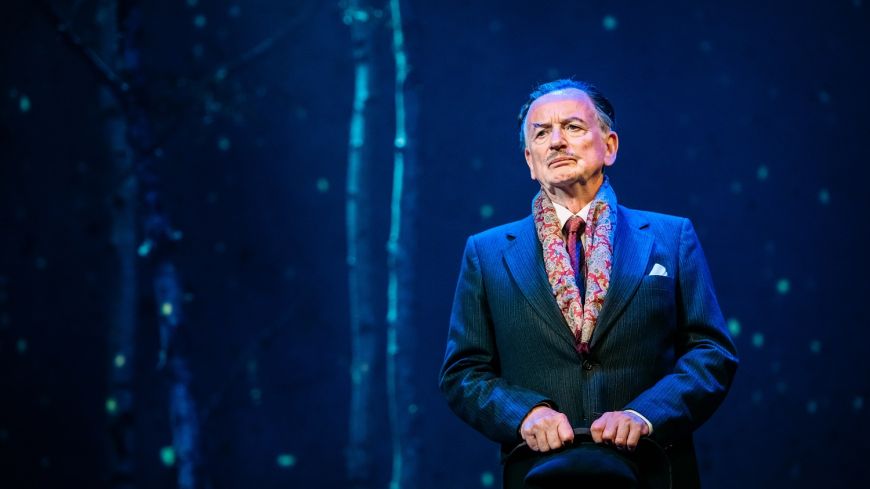
Peter Pan needed to have his shadow sewn back on. Chris Hannan takes the notion of our shadow selves and runs with it in his stylishly thought-provoking ‘What Shadows’. Hannan’s play uses the late Enoch Powell’s infamous ‘rivers of blood’ speech as its central leitmotif, though, classicist that he was, Powell only referred to one river – the Tiber.
The Powell created by Hannan and actor Ian McDiarmid reminds those of us of a certain generation of both the power he once appeared to exercise and its fragility, while McDiarmid’s later Powell, ridden with Parkinson’s’ Disease and chaffing at his own marginalisation is its own quiet triumph of characterisation.
‘What Shadows’ is a play of at least two halves, which is perhaps as it should be, and its opening scene between black academic Rose (Amelia Donkor) and publicly disgraced academic Sofia (Joanne Pearce) sets the arguments of identity, ethnicity and belonging birling through the audience’s consciousness, while their search for Powell and his actual attitudes and motivations lie at the heart of the contemporary parallels Hannan sets out to explore.
The unlikely friendship between McDiarmid’s Powell and his wife (also Joanne Pearce) with liberal couple Clem Jones (Nicholas Le Prevost) and his wife Marjorie (Paula Wilcox) allows both a more human Powell to emerge and a more tolerant England to be asserted, but in spite of some fine words and sentiments expressed by Ameet Chana, Waleed Akhtar and Donkor, not to mention reference to the battle of Kohima, that now forgotten ‘Stalingrad of the East’, the focus of Hannan’s play remains with its white characters.
Reference is certainly made to the various waves of emigration into England, from Flemish and Huguenot weavers through to Jewish and other refugees, although the fact that archaeological evidence suggests the Anglo Saxons were immigrants before they were conquerors is elided over, as is the uncomfortable fact that however sympathetic Charles II and his brother James may have been to religious tolerance, political and social dissent were for both an entirely other matter.
Nevertheless, there is much to appreciate and ponder on in Hannan’s play, not least its fine ensemble playing, Roxana Silbert’s direction, the weight of its arguments and the language of its characters. ‘What Shadows’ is a play which very clearly speaks of contemporary England, even if one can only speculate how many in contemporary England will have the opportunity to consider what it has to say.
Runs 7-23 September 2017

